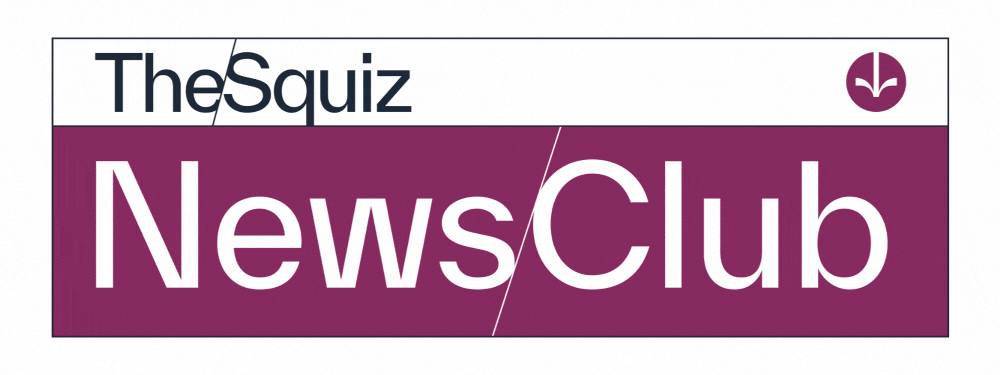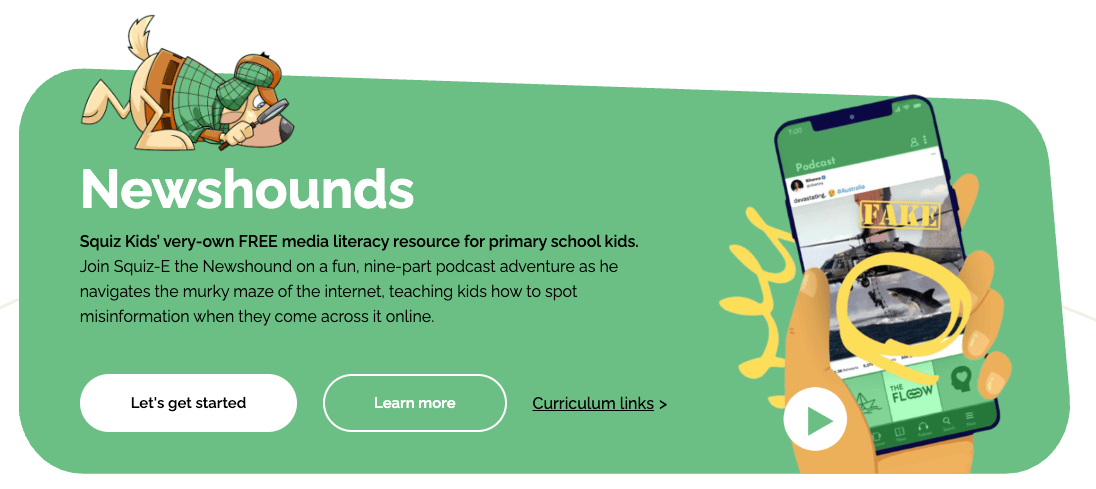- News Club
- Posts
- The Big Threat: Brave New World
The Big Threat: Brave New World

In the first episode of our new News Club series ‘The Big Threat’, I travelled to San Francisco to meet one of the world's leading authorities on media literacy education against the backdrop of Meta abandoning fact-checking on its platforms. What emerged was a sobering assessment of just how unprepared we are for the information wars reshaping our democracies.

Brave new world…
I’m thrilled to be your host on a journey through what I - and many academics, politicians, analysts and policymakers - think is THE issue of our time. That is, how we tackle mis- and disinformation to keep our kids, communities and democracies safe.
So, welcome to The Big Threat - an 8-part special News Club series based on my Churchill Fellowship travels earlier this year to the US, UK, Estonia, France, and Finland, where I met the experts sounding the alarm on one of the defining challenges of the digital age.
And in episode one, we kick off with what Stanford University’s Professor Sam Wineburg calls an assault on truth itself. While we've been playing defence against "fake news," the real battle has shifted to something far more insidious: the deliberate cultivation of confusion. He says, for example, former strategist to US President Donald Trump, Steve Bannon and his "flood the zone with shit" strategy isn't just about spreading lies - it's about making people so overwhelmed they simply give up trying to find the truth.
The timing of my visit couldn't have been more dramatic. As Meta announced it was abandoning fact-checking, I was sitting with Sam - a world-renowned disinformation expert - watching one of the world's most powerful information platforms throw in the towel on truth. It felt like watching the referees walk off the field mid-game.
But there's resistance brewing. At Californian broadcaster KQED, educators like Randy Depew are working with young people to understand how media is made, operating on a simple but powerful principle: you learn best about how the sausage is made by making it yourself. The question is whether we're already too late.
You can listen to the podcast here or tune in on YouTube - and hit subscribe while you’re at it. And scroll on for my highlights of our conversation.
Interview Highlights
Highlight 1: The economics of rage
Bryce Corbett: The point you also make in your book is that during that period when media sources were limited, the people providing that information, reputationally, to greater or lesser degrees, took it upon themselves to ensure that the information they presented was going to be correct. But that has now gone out the window in this new World information order. Has it not?
Professor Sam Wineburg: Well, think about, think about just how the platform X monetises contributors. Contributors are monetised by their level of engagement. So the more incendiary, the more enraged, the richer the rage merchant becomes. Merchants, people who profit off of the skilful deploying of anger, of trolling, of rage, because that seems to be a recipe for more engagement, which ultimately leads to a greater pay stub from the platforms that provide it. And in other words, it pays to lie.
Highlight 2: Search engines aren’t truth engines
Sam: Search engines are looking for the slightest indication of what we want because the economic model is one of engagement and attention, because the longer we stay on the screen, the greater the opportunity that the platform has to sell US ads or to provide us with ads. The classic statement in Silicon Valley is ‘if it's free, the product is you’. And so many people don't understand. They say, ‘Oh, I can use Instagram. It's free.’ It's not - the platforms are collecting an inordinate amount of information about each one of our buying habits and proclivities, et cetera.
Highlight 3: The scale of the media literacy problem
Bryce: The news may have made it to you over there in the US that the Australian Government is planning to introduce a social media ban for children under the age of 16yo later this year. Do you think that measure is sufficient?
Sam: I just read a report that actually my research group was able to consult with a group of researchers at the University of Canberra, which showed that in a survey of over 2,000 Australian adults, 97% of them experience some type of difficulty in verifying information. But here's the thing that was most concerning to me. In that report, 39% of the adults said they were confident at verifying information online. But there was not a single respondent who got a single answer right on one of the 4 exercises that the researchers provided.
What are we doing about it?
That would be our world-leading daily news podcast for 7-12yos, Squiz Kids, and our media literacy program Newshounds…
Since 2020, our investment in ensuring Australia’s next generations become critical consumers of news and information online has been significant, and we’re committed to the cause.
How can you help? Recommend Squiz Kids to the parents, carers and teachers in your life - and if you fall into one of those categories yourself, dive in. We’re in more than 6,000 classrooms and many more family homes around the country, fuelling kids’ interest in the news every day.
Show us some love
If you’ve been enjoying News Club and our interview series, the best way you can support us is by sharing us with your friends/family/colleagues/boss. Share your unique link below, and we’ll know you sent them our way. Merci buckets.
Copy and paste this link and share it around:
